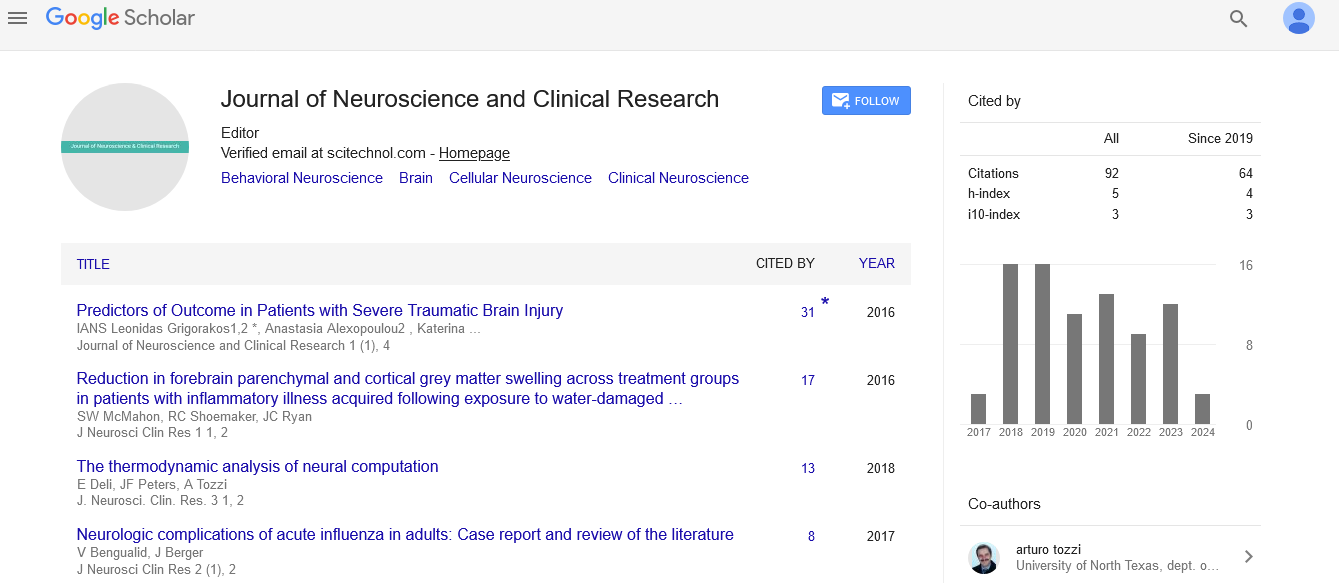Innovative therapies for Alzheimer's disease: Progressing beyond Amyloid and Tau
Allison B. Reiss
NYU Long Island School of Medicine, USA
: J Neurosci Clin Res
Abstract
Alzheimer’s disease (AD) is an incurable progressive neurodegenerative disorder that results in memory loss and impaired learning, judgment, communication, and cognitive abilities. AD is the most common cause of dementia and one of the greatest healthcare challenges worldwide. Prescription drugs approved for use in AD patients help to manage symptoms, but do not change the course of the disease. A hallmark of AD is the accumulation of misfolded protein aggregates of tau and amyloid in the brain. Extensive research has been carried out for the development of treatments directed at reducing the burden of these proteins, but the results have been costly and disappointing. Novel approaches that can lead to real breakthroughs are urgently needed. While there has been progress in designing blood and CSF-based predictive and diagnostic biomarkers, the etiopthogenesis of AD remains unclear. In order to develop efficacious treatments, it is essential to understand underlying mechanisms at the molecular level. New tools are rapidly becoming available that will allow deeper understanding of cellular processes disrupted in AD neurons so that corrective action can be targeted specifically and with precision. Methodologies being considered to prevent or slow neuronal damage would address abnormalities in energy metabolism, increased oxidative stress, neuroinflammation and DNA damage. Successful therapy would result in preservation of neural connectivity, neuronal densities and synaptic signalling. Dr. Reiss will discuss potential innovative, feasible approaches to AD treatment building upon current and evolving knowledge of the AD landscape. She will offer new perspectives for ground-breaking research into AD treatment.
Biography
Allison B. Reiss is a Board Certified Internal Medicine physician who received her M.D. from SUNY Downstate School of Medicine then completed her residency at UMDNJ Rutgers. She is a molecular biologist, and Associate Professor of Medicine at NYU Long Island School of Medicine. Her laboratory, funded by the Alzheimer’s Foundation of America, studies processes underlying neuronal loss in AD and pursues novel approaches to treating this debilitating disorder. Dr. Reiss has authored numerous peer-reviewed papers, is Section Editor-in-Chief, Neurology, for the journal Medicina, and Specialty Chief Editor of AD and Related Dementias for the journal Frontiers in Aging Neuroscience.
 Spanish
Spanish  Chinese
Chinese  Russian
Russian  German
German  French
French  Japanese
Japanese  Portuguese
Portuguese  Hindi
Hindi 